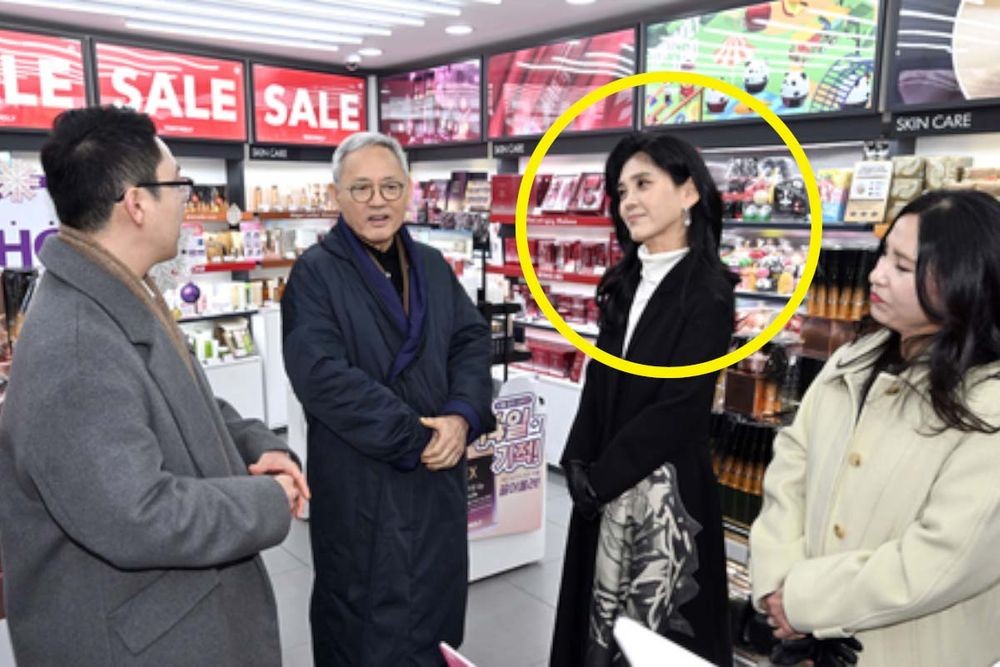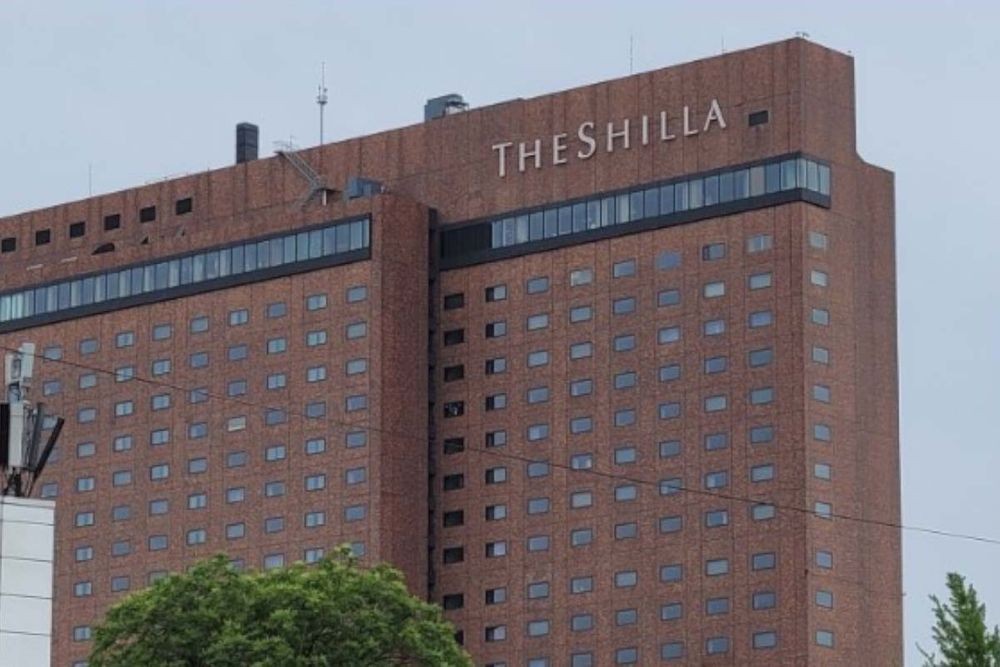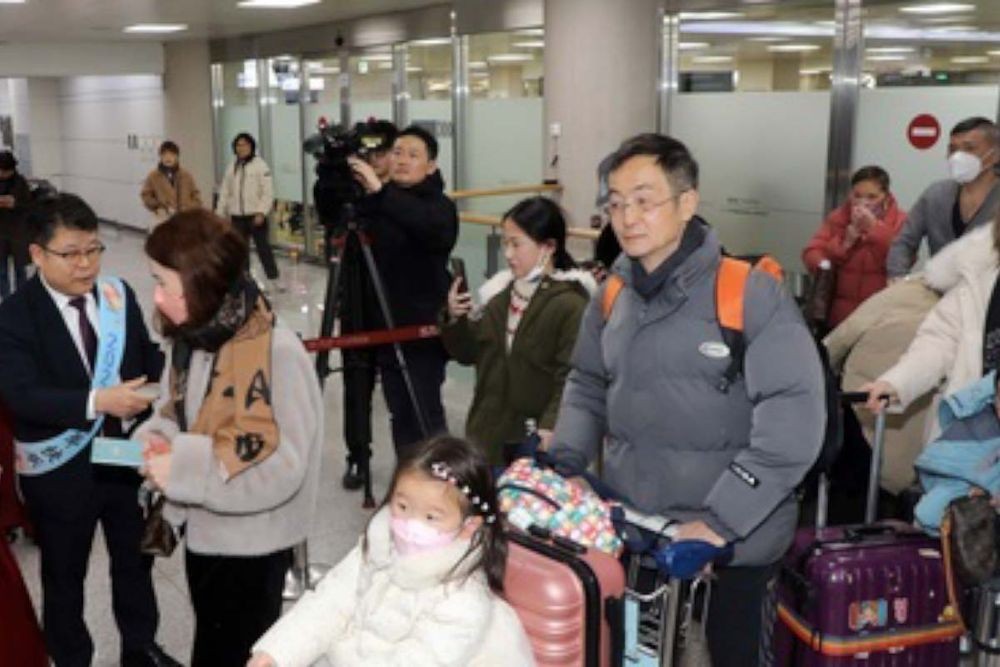
On the 8th, the investment banking sector disclosed that Lee Boo Jin, the president of Hotel Shilla, has initiated demand forecasting to offload 5,247,140 shares of Samsung Electronics through one of the top five banks in the market. The anticipated sale price per share is expected to range between 83,700 won ($74.15) and 84,500 won ($74.95), a rate established with a maximum discount of 0.95% compared to the closing price of 84,500 won ($74.95) on that day.
The total size of the shares being sold by President Lee amounts to a substantial 446.7 billion won ($395.6 million). According to insider sources, JP Morgan and Citigroup Global Markets Securities will oversee this multibillion-won block deal. A block deal involves trading in the over-the-counter market, facilitating the sale volume of a major shareholder with a significant number of shares through institutional entities.
President Lee is divesting shares in this transaction: On the successful completion of the sale, her stake in Samsung Electronics will decrease to 0.80%, down from 0.89%.
The previous month, President Lee entered into a trust agreement with Hana Bank to sell Samsung Electronics shares, citing “loan repayment” as the purpose of the stake sale.

Earlier in January this year, President Lee Boo Jin also made a large-scale sale through a 558.6 billion won ($494.5 million) block deal of stakes in Samsung Electronics, Samsung C&T, Samsung SDS, Samsung Life Insurance, and other Samsung Group affiliates.
Around the same time, Hong Ra Hee, the wife of the late Chairman Lee Byung Chul, and their child Lee Seo Hyun, the chairman of the Samsung Welfare Foundation, followed suit by divesting their shares. When the total sales by the three women, including President Lee, are aggregated, the value of sold shares in Samsung Electronics and its affiliates is estimated to surpass 3 trillion won ($2.65 billion).
Industry analysts speculate that President Lee and her family initiated selling Samsung Electronics shares to settle the 12 trillion won ($10.6 billion) inheritance tax levied on the 26 trillion won ($23 billion) estate inherited from the late Chairman Lee Kun Hee. To manage the hefty tax obligation, the Samsung family has utilized the inheritance tax-deferred payment system to spread the payments over ten years. Beginning in 2021, following the passing of the honorary chairman, they have committed to making installment payments over five years.
Before this, President Lee had entrusted 0.33% of her Samsung Electronics shares to a financial institution, securing a loan of approximately 707 billion won ($626 million) at an annual interest rate of 5%. The monthly interest payment to the financial institution is estimated to exceed 3 billion won ($2.65 million).

Meanwhile, under the leadership of her brother, Lee Jae Yong, Samsung Electronics is experiencing an upward trend in stock prices driven by global exports like semiconductor production. Hotel Shilla, led by President Lee Boo Jin, has faced a prolonged decline in stock value.
However, on the 9th, Shinhan Investment Corp. maintained a “buy” investment of Hotel Shilla, retaining the target price at 75,000 won ($66.45), signaling a positive outlook. Analysts anticipate that Hotel Shilla’s Q1 sales will meet market expectations, fueled by an uptick in Chinese group tourism. This effect is expected to bolster the company’s company’s gradually.
Cho Sang Hoon, a researcher at Shinhan Investment Corp., predicted that Hotel Shillas are expected to increase by 37.7% compared to the same period last year to 1.4 trillion won ($1.24 billion) and operating profit may decrease by 7.2% to 32 billion won ($28.3 million). Still, it will be enough to meet market expectations.
He said, “A large increase in sales is expected due to the base effect corresponding to the decrease in demand for Daigou (people who bought a large number of Korean goods and resold them in China) related to duty-free last year (2023) and the increase in global travel demand after the COVID-19 pandemic,” and “Moreover we foresee no concerns regarding a deteriorating cost ratio, as there appears to be a likelihood of depleting the inventory of cosmetics, which was the primary contributor to the deficit in Q2 last year.”

Researcher Cho highlighted, “Based on “insights from the travel industry, we anticipate a gradual recovery in the entry of Chinese group tourists starting from Q2 of this year.” He added, “In February of this year, there was an increase in Korea-China airline routes, accompanied by a rise in group travel offerings during China’s holiday.” He noted, “In March, we observed the return of Chinese group tourists via charter flights to Incheon Airport for the first time in seven years, signaling the emergence of group tourism, particularly from the affluent Chinese segment.”
Furthermore, researcher Cho states that while the duty-free industry is currently in the initial stages of recovery, the company appears to reflect predominantly negative sentiments. Hence, he suggests that the company should be prepared for potential upside. He emphasized the significance of Hotel Shilla’s enhancement amidst the ongoing restructuring of the supplier-centric market post-THAAD (Terminal High Altitude Area Defense) and COVID-19.
As of 12 noon on the 9th, Hotel Shilla’s stock price is 59,800 won ($52.95), an increase of 200 won ($0.18) or 0.34% compared to the previous day, with a market capitalization of 2.347 trillion won ($2.08 billion), the company holds the 134th position in the KOSPI market cap rankings.















Most Commented